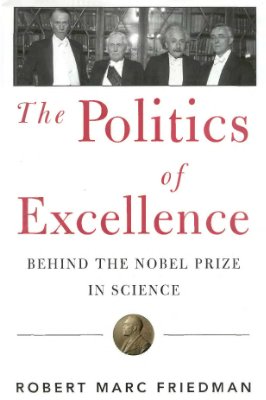Times Books, 2001. - 379 pp.
There is politics in everything, including the most prestigious awards in science; here's the inside story, told by a historian of science currently living in Norway. When Alfred Nobel left the bulk of his fortune to found a series of prizes in the arts and sciences, he must have foreseen some of the infighting that would rage around his bequest. To begin with, he designated several rival bodies within the Swedish scientific establishment to administer the prizes. Just as critical were the rivalries within each of the sciences. Not just personal rivalries: industrial chemists and theoretical chemists fought over which branch of their discipline would receive recognition. A similar divide between experimental and theoretical physics contributed to the delay in recognizing Einstein, who received the prize in 1922 for his explanation of the photoelectric effect. (The Academy ordered him not to mention relativity in his acceptance speech—a restriction that Einstein blithely ignored.) World War I forced tough decisions due to the support for the war effort by many German scientists. Some argued that the prize should not be awarded at all in wartime. A particular scandal arose with the belated award of the 1918 chemistry prize to Fritz Haber, whose development of a process to obtain nitrogen from the atmosphere was overshadowed by his contributions to the war effort in the form of poison gas. Pro-German sentiment on the committee also contributed to the acrimony of the debate over Einstein, who had taken a strong antiwar stance. Anti-Semitism also played a role in the debates. Drawing on primary sources, Friedman examines the personalities not only of the laureates but of the lesser-known committee members, and usefully illuminates the social and intellectual context of science. Often dry, but full of insight into the history of the most famous prize in science.
There is politics in everything, including the most prestigious awards in science; here's the inside story, told by a historian of science currently living in Norway. When Alfred Nobel left the bulk of his fortune to found a series of prizes in the arts and sciences, he must have foreseen some of the infighting that would rage around his bequest. To begin with, he designated several rival bodies within the Swedish scientific establishment to administer the prizes. Just as critical were the rivalries within each of the sciences. Not just personal rivalries: industrial chemists and theoretical chemists fought over which branch of their discipline would receive recognition. A similar divide between experimental and theoretical physics contributed to the delay in recognizing Einstein, who received the prize in 1922 for his explanation of the photoelectric effect. (The Academy ordered him not to mention relativity in his acceptance speech—a restriction that Einstein blithely ignored.) World War I forced tough decisions due to the support for the war effort by many German scientists. Some argued that the prize should not be awarded at all in wartime. A particular scandal arose with the belated award of the 1918 chemistry prize to Fritz Haber, whose development of a process to obtain nitrogen from the atmosphere was overshadowed by his contributions to the war effort in the form of poison gas. Pro-German sentiment on the committee also contributed to the acrimony of the debate over Einstein, who had taken a strong antiwar stance. Anti-Semitism also played a role in the debates. Drawing on primary sources, Friedman examines the personalities not only of the laureates but of the lesser-known committee members, and usefully illuminates the social and intellectual context of science. Often dry, but full of insight into the history of the most famous prize in science.

